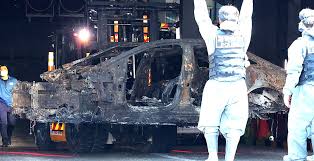
Nissan’s EVs: Why never catch fire?
– Fires focus on Korean and Chinese batteries
– Korean manufacturers reveal all 22 battery brands
Summary from Weekly Playboy.
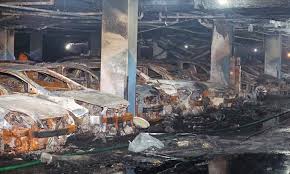
EV battery fires continue in Korea:
During the scorching hot summer in Korea, frequent EV fires have become a hot topic.
Amidst all of this, Japanese-made EVs are attracting attention.
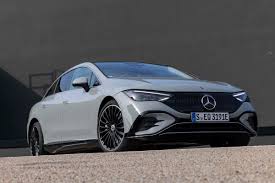
Mercedes-Benz EQE350 catches fire in Korea:
In August, EV battery fires have been occurring one after another in Korea.
On August 1, the EQE350 was equipped with a Chinese-made battery.
1. The EQE350 was parked in an apartment building’s underground parking lot.
2. The EQE350 caught fire, burning 40 cars.
South Korea closed its underground parking lots and suspended charging stations.
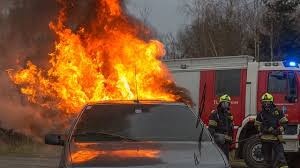
Chinese-made batteries caused the fire:
The cause of this EV fire accident was batteries made by a Chinese manufacturer.
Lack of reliability of Chinese-made EV batteries:
China’s automobile industry has grown rapidly since 2000.
1. In the future, China will be severely criticized by other countries for defective EV batteries.
2. China has low safety awareness for EV batteries and is immature.

Safety of Japanese-made Li batteries:
Japanese-made EVs actually have excellent Li battery safety.
There have been no accidents involving Japanese-made EV batteries anywhere in the world.
So we tried to find out the secret behind why Japanese-made batteries do not catch fire.
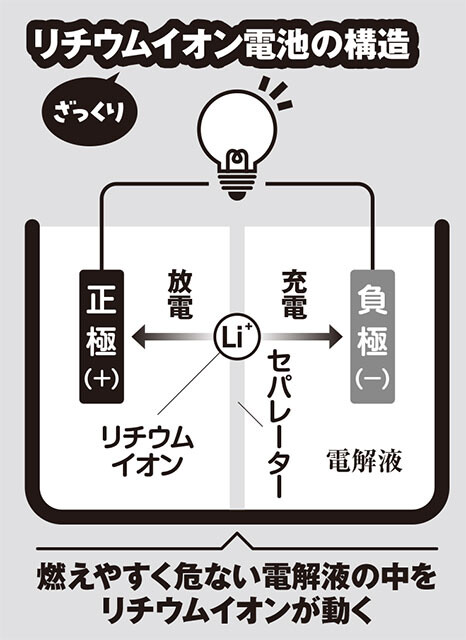
Causes of EV battery fires:
Please take a look at the diagram above.
EVs around the world are equipped with lithium-ion batteries.
1. These lithium-ion batteries are vulnerable to impacts.
2. The separator breaks, causing the positive and negative electrodes to come into contact and short out.
When the short out occurs, heat begins to be generated, and this heat causes further heat generation.
3. This causes a phenomenon known as “thermal runaway.”
4. The solvent turns into flammable gas, which ignites and burns.
EV battery fires are extremely difficult to extinguish.
Safety of the Nissan Leaf:
1. The Nissan Leaf debuted in 2010 as the world’s first mass-market EV.
2. The Leaf is world-famous for being an EV that “never catches fire.”
3. The Leaf is the world’s first mass-market EV, so failure is impossible.

Why don’t Japanese-made EVs explode?
Reporter Yoichiro Watanabe explains.
1. Japanese manufacturers take thorough measures to prevent and prevent fires.
2. Thorough heat checks are carried out to constantly optimally control the battery temperature.
Ensuring the safety of battery materials and electrodes:
3. Nissan independently developed the shape of the battery and the materials used for the electrodes.
4. In the unlikely event of a fire occurring inside the battery, the fire is prevented from spreading to the cells.
Panasonic and Nissan have invested a lot of money into developing vehicles, prioritizing safety measures.
EV defects lead directly to fatal accidents:
If an EV battery has a defect, it will lead directly to fatal accidents.
If the defective product rate is 0.01%,
1. If 20,000 EVs are sold per month, there will be two fatal accidents per month.
2. It will be the EV manufacturer’s fault, and it will trigger bankruptcy.

South Korea: “All brands disclosed” after EV fire
-Here are the battery suppliers for 22 brands-
Summary from Nikkei Crosstech (xTECH).

Questions about EV safety in South Korea:
1. Following the series of fire accidents, voices questioning the safety of EVs have grown louder in Korea.
2. Korean EV manufacturers have been forced to respond due to public pressure.
By August 28, 2024, 22 brands have announced their battery suppliers one after another.
Accident involving Germany’s Benz EV “EQE”.
1. Germany’s Benz EV “EQE” is equipped with batteries made by China’s Farasis Energy.
2. A few days later, an accident occurred in which Kia Motors’ “EV6” caught fire.
Following the series of fire accidents, voices questioning the safety of EVs have grown louder.
This month, a 500-family apartment building in Seoul banned EVs from entering.
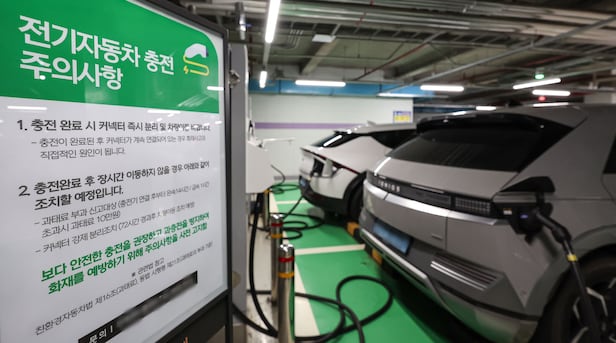
Korea’s Hyundai Motor makes this public:
The first to act was Korea’s Hyundai (which owns Kia Motors).
On August 9, Hyundai voluntarily disclosed the battery suppliers for all of its EV models.
Hyundai explained that the reason for this was “due to an increase in inquiries.”

1.Mercedes-Benz and BMW disclose:
Mercedes-Benz and BMW have also disclosed the battery suppliers for their EV brands.
2. European EV brands disclose:
Jaguar Land Rover in the UK, Renault in France, Stellantis in Europe, and Volvo Cars in Sweden have disclosed their information.

3. US EV brands considering disclosing their information:
Volkswagen in Germany, Tesla in the US, and General Motors in the US
initially indicated that they would “discuss this with their US headquarters,” but it appears they will ultimately disclose their information.
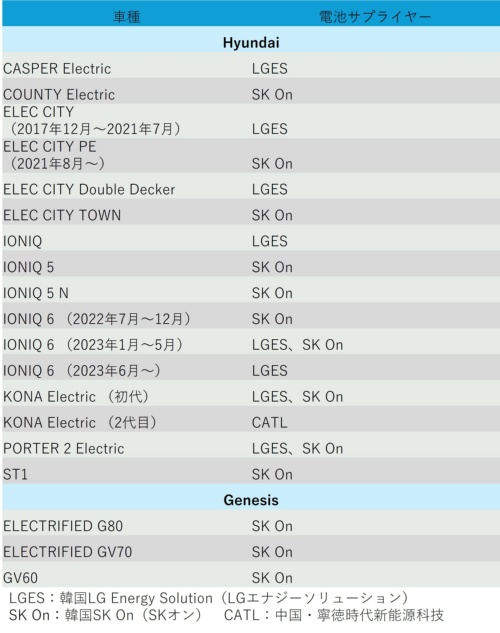
Nikkei Automotive creates a list:
A list of battery supplier information disclosed by each company.
List of battery suppliers announced by Hyundai Motor:
Created based on materials from the Korea Automobile Recall Center
Created by Nikkei Automotive (Source: Hyundai Motor)
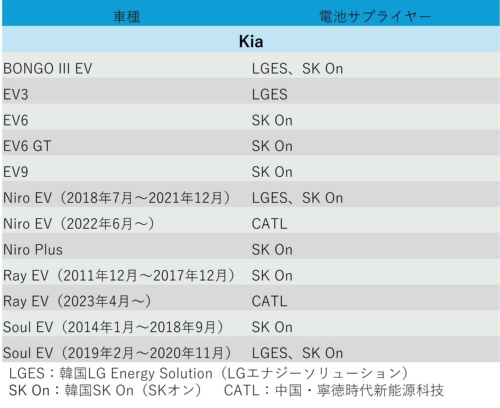
List of battery suppliers announced by Kia Motors:
Created based on materials from the Korea Automobile Recall Center
Created by Nikkei Automotive (Source: Kia Motors)

